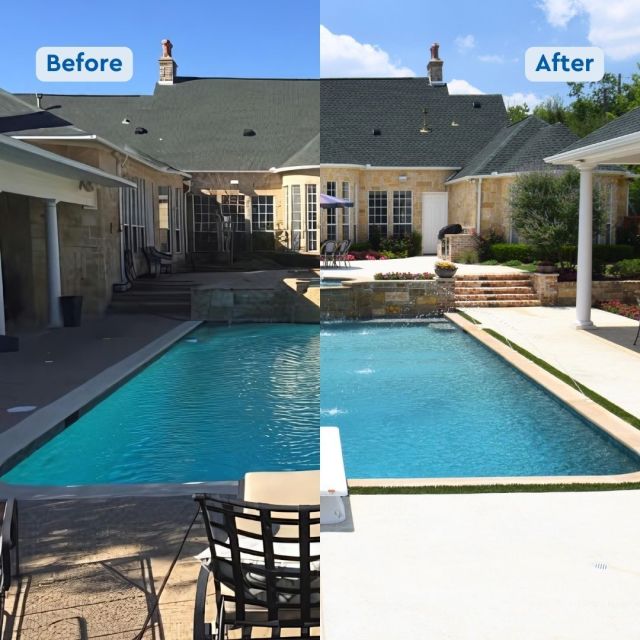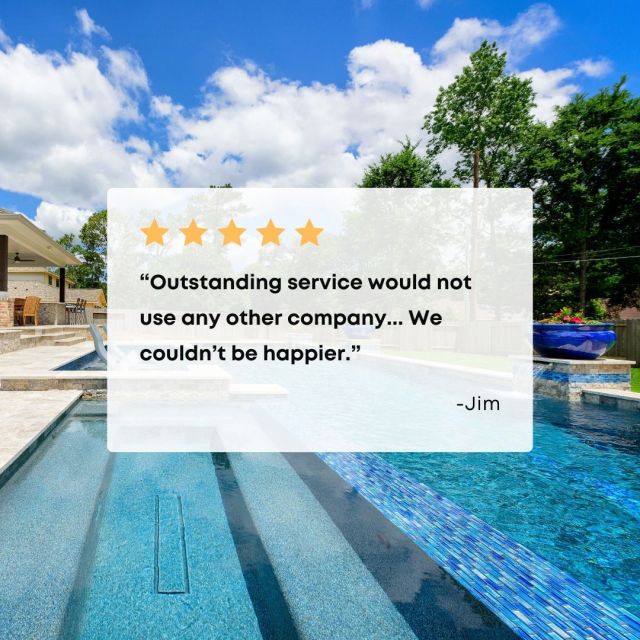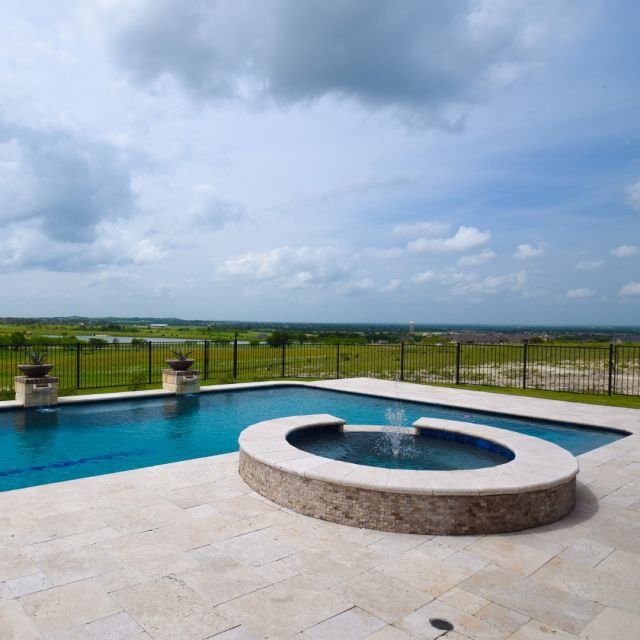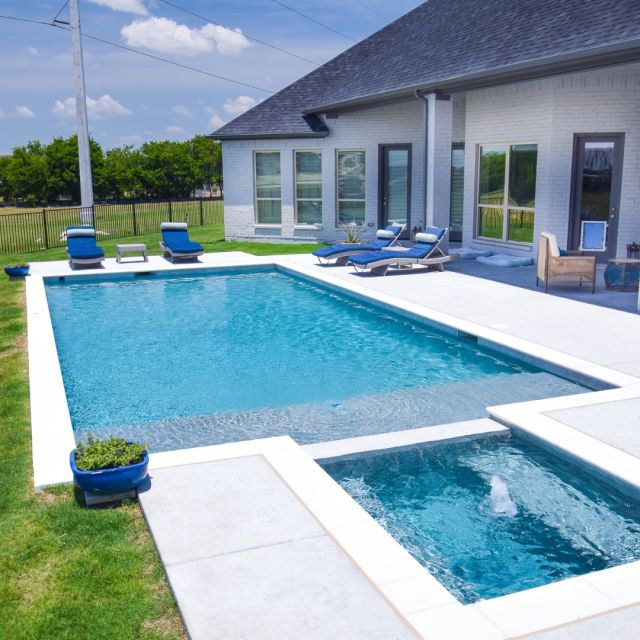What Should Chlorine Levels Be in a Swimming Pool?
A swimming pool should be a relaxing, enjoyable environment, but this is only possible if the water chemistry is sanitary and properly balanced. Pool chlorine is essential for this and without it, your pool can become the perfect breeding ground for bacteria. Not only does this make the water look murky and unpleasant, but it can also make you ill.
You might assume that you can toss any quantity of chlorine into your pool and consider the job done, but chlorine levels must be meticulously checked to guarantee a safe swimming environment. But what should chlorine levels be in a swimming pool? The team at Miller Pools is here to help with this comprehensive guide.
What is chlorine and what does it do to your pool?
Chlorine is a chemical element that prevents algae and bacteria from building up to ensure your pool water remains safe, clean, and ready for you and your family to enjoy. It also oxidizes the water, breaking down any impurities and contaminants to ensure it stays crystal clear.
What are safe pool chlorine levels?
Finding the right level of chlorine for your pool can be tricky and it’s important to get it right; too little chlorine and bacteria can grow, too much chlorine and you risk exposing swimmers to a dangerous amount of chemicals.
Typically, the recommended chlorine levels for a pool are between 2 and 4 ppm (parts per million). The absolute minimum level of chlorine your pool should have is 1 ppm and the maximum is 6 ppm. While these figures apply to both residential and commercial pools, it’s important to bear in mind that public pools are much more frequently used and, consequently, subject to much stricter regulations and testing requirements. Therefore, it may be best to schedule regular pool maintenance sessions with a trusted professional like Miller Pools to ensure your public pool chlorine levels are correct.
Understanding alkalinity in your pool
Of course, chlorine alone won’t ensure your water is safe for swimming, and that’s where alkalinity comes in. Alkalinity refers to the level of alkaline salts present in your pool, and these substances help to neutralize bases and acids. To put it simply, alkalinity stabilizes the pH of your pool and helps to prevent any sudden fluctuations.
The pH of your pool determines how alkaline or acidic the water is; a pH of below 7.0 indicates too much acidity and a pH of above 8.0 indicates the alkalinity is too high. The ideal pH for a swimming pool should range between 7.2 and 7.8 and the alkalinity of your pool should always be kept between 80 and 120 ppm.
How to test pool chlorine levels
There are typically two ways to test swimming pool chlorine levels: test strips and test kits. Test strips are a cheap and quick way to check chlorine levels in a pinch; simply dip the test strip into the water and watch the color it changes to. Then, compare the strip to the color chart provided to determine how much chlorine is present.
Alternatively, for a more in-depth picture of your pool chemistry, you can contact the team at Miller Pools and we can conduct any water testing for you to reduce hassle.
How to lower and raise chlorine levels in your pool
If the chlorine levels of your pool are too high, this can have serious consequences, as too much chlorine can cause irritation to swimmers’ skin, eyes, and lungs. Therefore, it’s important to lower this figure and ensure safe pool chlorine levels. But how can this be done?
Firstly, stop adding pool chlorine immediately and then remove the pool cover; sunlight can lower chlorine levels by up to 90%! If this doesn’t work, you’ll need to add some neutralizing pool chemicals to break down the excess chlorine; be sure to consult a local pool professional if you’re not sure which swimming pool chemicals are best for your needs. If time isn’t a deciding factor, you could also try draining and refilling the pool, but this may affect the overall chemical balance.
On the flip side, if you need to raise the chlorine levels of your pool, this is a simple enough job – simply add pool chlorine tablets, pool chlorine liquid, or pool shock.
If you need help ensuring your pool has the right level of chlorine, get in touch with the team at Miller Pools today. We provide a comprehensive range of maintenance services, including pool cleaning, water testing, and pool repairs, to help you make the most of your pool. With over 25 years of experience in pool care, we’re the local pool care experts across Pasadena, Humble & Atascocita, TX, and beyond.
« Back to Help & Advice



